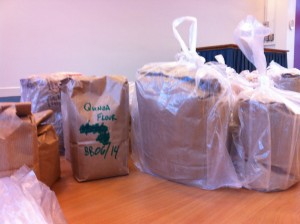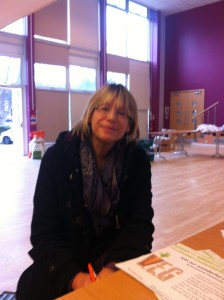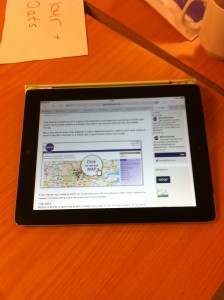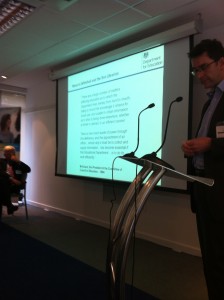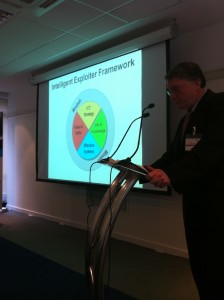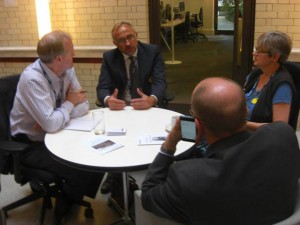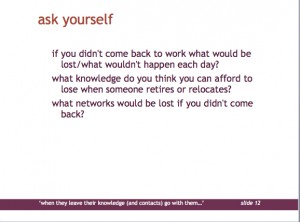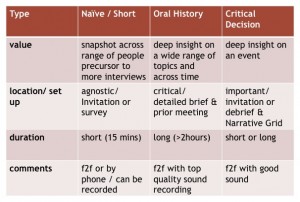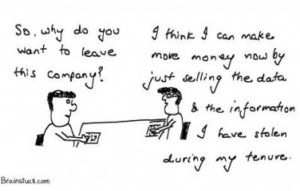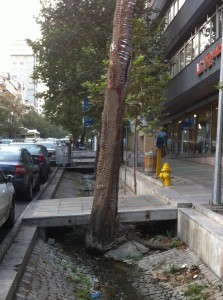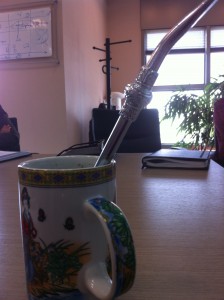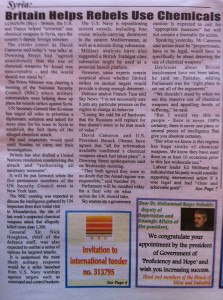
Vera Zakaharov of Food Waste Collective having a discussion about potential donors with a commumity chef from Emmaus Brighton.
Friday was one of those days that restored my faith in human nature. I was in Brighton on behalf of Plan Zheroes supporting The Food Waste Collective’s 2nd food share event, held at University of Brighton’s Moulscoomb campus.
The impetus for this event came from a group of women who call Brighton their home: Vera Zakharov, Mei-Wah Tang, Caitriona Donahoe, Saskia Wesnigk-Wood and Josie Jeffery.
The timing could not have been more apposite: WRAP (Waste & Resources Action Programme) established as an independent not-for-profit company that aims to minimise resource use and divert priority materials from landfill recently published an intriguing report, the WRAP Review of Waste in the Hospitality and Food Service Sector that looks at how inter alia the UK can make better use of surplus food.
It notes: Redistribution of surplus food so that it is still eaten before it becomes waste, is preventing food waste, e.g. sending surplus food to a charity.

Mei-Wah Tang welcoming two members of a local charity and getting them to sign the PlanZheroes Charity Agreement
It was encouraging to see how many young people from many nationalities all getting together to make sure that fewer families are forced to make eat or heat decisions.
As a former Lewesian I was not alone, Pearl and Helen from the Lewes Food Bank were there showing the ‘young bucks’ how to bag up quantities of food into manageable portions. This is a skill and one that can make a huge difference on the day in terms of reducing waste and saving time for volunteers.
So the ‘dynamic duo’ have both agreed to produce a video that shows others the tricks of the trade. I will provide the link in due course.
Pearl will be in addition establishing a link with Le Magasin in Lewes (the first donor to sign up there last year when I launched the Plan Zheroes intiative in Lewes) who have agreed to supply the Lewes Food Bank one of 3 in the town supported by Mayor, Ruth O’Keefe.
I heard some wonderful stories of community engagement/ plaudits for Nathan of FareShare Brighton and of the superb work of Emmaus Brighton who grow and cook their own food in Portslade and note:
Research shows that for every £1 invested in a community, there is an £11 social, environmental and economic return, with savings to the benefits bill, health services and a reduction in crime reoffending.
Let me share one initiative just getting off the ground which I think deserves our support.
Sue Saunders of St Andrews School Hove is one of a growing number of parents who are concerned about the increasing levels of obesity among our young children.
She (and I) bemoan the growth of fast food, TV dinners and the lack of culinary skills among the population. Austerity and consumerism are forcing both parents to work which is impacting family time and conversations over food which is where much social interaction occurs.
So Sue and her team are attempting to teach school children basic cookery skills so they can develop a taste for and interest in good food. Sue was there to pick up ingredients and needs a small cooker so if anyone can help here’s her email address (reproduced with her permission): sussaunders25@hotmail.com.
Apart from the copious amounts of food that was shared, Vera, Mei-Wah and Josie managed to sign up 3 charities to the PlanZheroes food map and registered Food Waste Collective as donors.
Perhaps the most gratifying aspect of the visit was to see the enthusiasm among everyone who was giving up their time and skills to try and make a difference to the lives of people who are less fortunate.
At a time when immigration is in the spotlight it was noticeable that the volunteers came from a wide cross section of nationalities and ethnic background where food and community support are more of an ingrained part of the social fabric.
Plan Zheroes is delighted to have been able to support the Food Waste Collective.
scores on the doors
From Vera:
our end of event stats:
27 volunteers + 3 pallets of surplus food x 8 hours = 19 food projects and charities happily receiving much-needed food donations.
So far, since the first event in August, we have distributed over 3 tonnes of perfectly good, healthy delicious dry goods to local projects.


